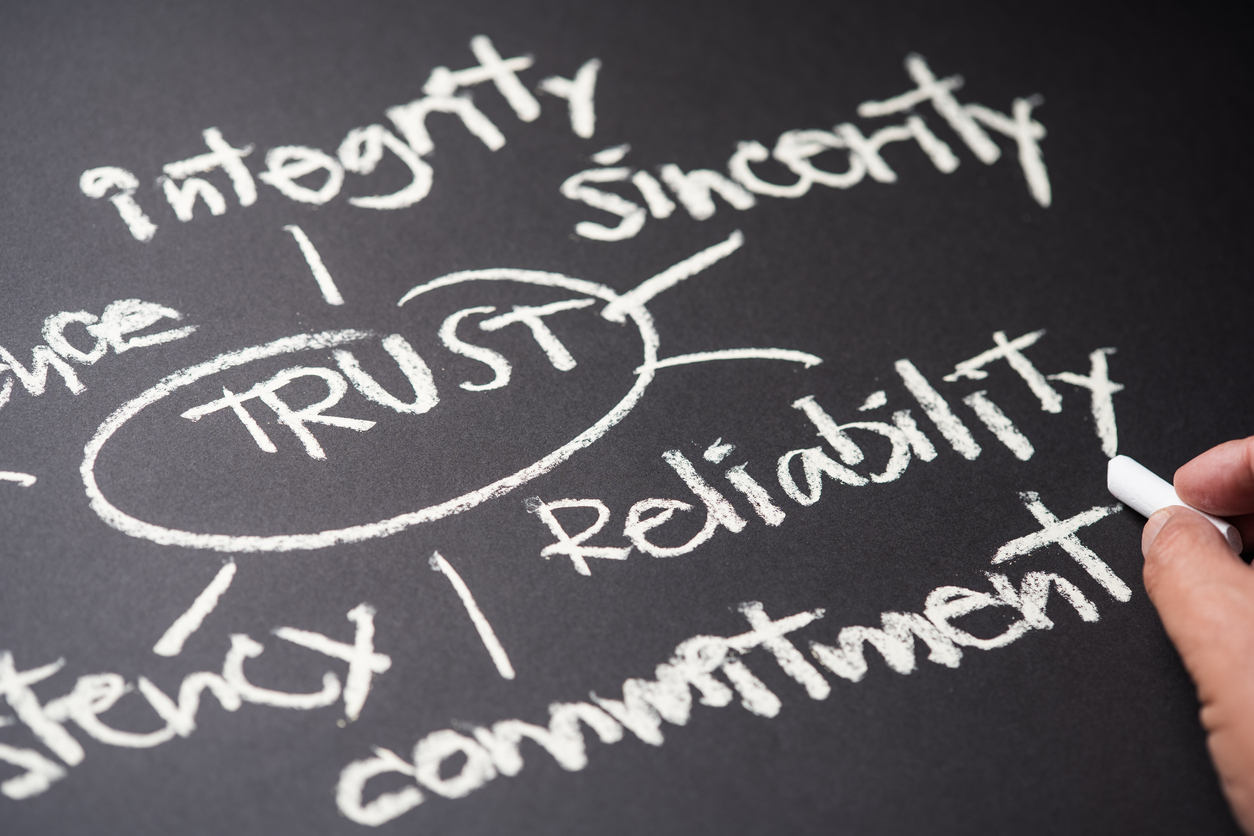‘A license to act’: Comms strategies for overcoming declining trust
While the Edelman Trust Barometer paints a grim picture, experts share practical strategies to help rebuild trust.

Trust is at an all-time low in the United States, and to reverse this trend, organizations of all sorts and their communications teams must rethink how they engage with the public.
These findings come from the 2025 Edelman Trust Barometer, a comprehensive international survey on public trust in government, media, business and NGOs. The study, conducted across 28 countries with responses from 33,000 individuals, highlights a “crisis of grievance” that extends far beyond simple dissatisfaction.
Despite these challenges, communicators have an opportunity to rebuild trust – one of the most critical factors for organizational success today.
Margot Edelman, general manager at Edelman New York, noted that the results revealed a “generation of institutional failures.” However, she believes businesses have a “license to act” in today’s complex political and economic climate.
Edelman shared insights from the survey during a webinar hosted by the Institute for Public Relations and Edelman, moderated by Diane Schwartz, CEO of Ragan Communications, and featuring communications leaders from sectors including healthcare, technology and finance.
The primary takeaway from the panel is that it’s going to be incumbent on all of those organizations to work together to build trust across the board.
“When people don’t trust institutions to do what’s right, grievances fester and outlooks darken,” Edelman said. “This is why it’s critical to prioritize and rebuild trust across your organization and in your local communities.”
The era of pragmatism
To open the discussion Schwartz noted that the only way to rebuild that trust is to foster more collaboration across industries.
“Business cannot act alone in restoring trust,” she said.
While Schwartz believes communications needs to play an important role in rebuilding efforts, she highlighted that the political climate complicates efforts to rebuild trust.
Edelman said people expect NGOs to “fight divisiveness and repair the social fabric,” positioning themselves as “a unifying force that brings people together.” Notably, those with high grievances tend to believe NGOs can fulfill this role.
But not all areas show optimism. A concerning trend is the growing acceptance of hostile activism: half of young adults approve of aggressive tactics to drive social change and 27% support attacking people online, spreading disinformation or resorting to violence.
Mark Klein, CCO at non-profit healthcare system El Camino Health, noted that we are living in an era of pragmatism.
“We should avoid words that have been co-opted by political movements,” he said. Leadership may strongly support the principles of diversity, equity and inclusion, for example. But discussing DEI, or any other hot-button topic, will likely pull the brand into the politics fire.
That doesn’t mean brands should shy away from important topics or issues. Sometimes it’s just about finding different ways of talking about them. By reframing conversations to focus on outcomes rather than polarizing terms, communicators can engage broader audiences without alienation.
Klein gave the example of maternal health, which has been politicized at times. Rather than “health equity” as a concept, focus instead on the importance of ensuring safe care for every mother and child in every ZIP code Klein said.
“Focus on the work, not the words,” he added.
Building trust through leadership
The survey shows trust in CEOs is low (53%) compared to scientists (77) and teachers (75), but it’s higher than for journalists (52) and government leaders (47).
In order for CEOs to establish that sense of trust, they need to engage authentically with their stakeholders. But they need to focus on business-related issues and positive impacts rather than delving into broad social statements.
Based on the Edelman data, CEOs should speak on societal issues when:
- Their business contributed to the problem
- It harms their stakeholders
- They could have a major positive impact
- It would improve their business’s performance.
“The CEO does have a right and the permission to lead when they use their voice in the right way, on the right issues geared toward performance,” said Laura Burke, chief communications officer at Santander US.
Burke encouraged businesses to highlight their local impact and show tangible community benefits. For example, her CEO has been involved in green transition discussions, a key focus in financial services.
Addressing distrust with clear facts
A significant challenge facing organizations is widespread pessimism about the future. Only 36% of Trust Barometer respondents believe the next generation will be better off, with even lower optimism in developed countries.
Economic concerns further fuel this pessimism: 67% of respondents believe wealthy individuals don’t pay their fair share of taxes and 61% express grievances toward business, government and economic elites.
“We see that globalization, economic and technology fears are worsening job insecurity,” Edelman said. “People are scared about a looming recession and trade conflicts.”
A major driver of this fear is a lack of trust in artificial intelligence. Edelman’s study shows only 32% of Americans trust AI, and even fewer trust its use in business.
“People are afraid of automation,” Edelman said, stressing that businesses introducing AI must address these concerns by explaining its human-centered applications.
Klein added that clear and compassionate communication is essential in addressing fears around AI. It’s not just about giving information, though. It’s also about adding clarity, Klein said, which he called a “new currency.”
For instance, in healthcare, that means making it clear that AI will complement, not replace, human providers.
“Bridging the gap with knowledge is the solution,” Klein said.
Repairing trust requires creating hope
Edelman pointed out that today’s “deep desire for facts” presents an opportunity for communicators to provide clear, transparent and factual information – key actions in rebuilding trust.
Despite immense challenges, the panelists agreed there are silver linings. The Edelman Trust Barometer findings suggest that rebuilding trust can foster increased optimism and engagement from the public.
In a climate of distrust, businesses must position themselves as credible, transparent and accountable sources of information.
Edelman said that data shows that rebuilding trust can also generate optimism, creating “a positive, reinforcing loop.”
It’s the role of communicators to “build bridges of understanding” with their audiences to help them see the silver linings about the future, she added.
“Trust and optimism go hand in hand,” Edelman said.
Casey Weldon is a reporter for PR Daily. Follow him on LinkedIn.







